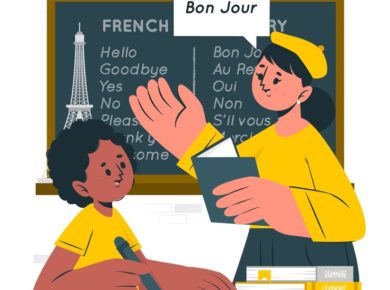If we have enough self-esteem, we feel good and positive. But sometimes, our self-confidence is knocked-off due to many unwanted reasons. But whatever the situation may be, we should remember we have the right to feel good about ourselves. The importance of self-esteem in students should not be under-esteemed. A healthy sense of self-confidence is necessary for a child to develop social skills and behavior and embrace the inner potential inside and outside the classroom. Today we will find several ways of building self-esteem in students.
Self-Esteem Vs. Self- Confidence
Self-esteem relates to the inner sense of how you think about yourself and your life. If you have higher self-esteem, you will not be able to stand up for yourself and feel more negative. Ask yourself the following things to know about your self-esteem:
- Do you believe you matter and you are good enough?
- Do you think that you deserve happiness?
- Do you like and value yourself as a person?
- Do you always try new things or choose complex ways?
- Do you stand up for yourself under pressure or in challenging circumstances?
- Do you believe in yourself?
Self-Confidence is accepting who you are and being proud of being yourself. It is an essential sense of thinking because you are the only version of yourself. You will know you have enough self-confidence if:
- You believe in your abilities and ideas
- You understand and accept who you are
- You do not regret making the wrong choices
- You manage a challenging situation positively and with a big smile
Improved inspiration
Lower self-esteem can make a weak child, and dreaming or achieving goals can be extremely difficult. The child can start believing that she or she is unworthy of attaining that dream. This mentality can desist the child from maintaining a high level of dedication and motivation.
However, as a teacher or parent, you can help that student build confidence and take one step toward the goal. This will create a sense of accomplishment in mind f the student, who will be helpful to sail and keep moving through the difficult times.
Less nervousness and anxiety
Over worrying and getting upset by making mistakes can harm and damage a child’s academic and social life. If a child receives help to higher the level of self-esteem, then he or she can break the cycle of overthinking and avoid anxiety. To bring out a student’s full potential, she or he has to explore new subjects, hobbies, goals, and ambitions without worrying much about how to perceive those things. Nervousness and anxiety can be a silent killer of the inner self-esteem of a human being.
More stability
Self-esteem helps students kick back from a depressed state of mind and easily handle any setback. Resilient children get up quickly, learn from their mistakes and try harder to win over failure. They can understand that being a failure at one point is a part of life. As a result, they boost confidence to take more chances and as a result, it helps to make their life more successful.
How to Build Self-Confidence in Students
As a teacher, you have the power to build up your students’ self-esteem rather than just providing feedback. Every student needs to build positive self-worth both in and outside the classroom. However, many students need help to cultivate their positive self-esteem, and there comes the role of a teacher. Here are the tips where teachers and parents can support a student in setting up their own self-confident theories:
Spread positivity
In general, students with low self-esteem mainly focus on the negative. They always tell what they can’t do, what can’t be possible. They will talk about their weaknesses and dwell on their mistakes. People like this need encouragement and appreciation to build up strength in their character. Teachers and students can both spread positivity through their bonding.

Provide only constructive criticism
People with low self-esteem cannot tolerate criticism even if it is meant for their betterment. Teachers and parents should never forget how sensitive these kids are and give them much-needed appreciation, love and acceptance. Always provide constructive criticism as teachers play a vital role in a child’s life.
Reward System
A reward system is always a welcome step in developing the self-esteem of students and teachers. It will bring happiness to their nature and they will look forward to doing more arduous and challenging work.
Focus on small achievements
To set up a successful life, set realistic expectations for your students. Know each student’s strengths and abilities and help them focus on small goals and achievements. Small and Manageable goals can create room for achieving the main goal in life.
Teach students how to learn from mistakes
Self-acceptance is a challenging chapter to learn in a student’s life. Turn mistakes into positivity and ask them to focus on what is gained rather than what is lost due to making errors. Make them understand that everyone makes mistakes but learning from the mistake and never doing it again is the most significant achievement.
To Sum Up
Today the environment of the classroom has been changed. Teachers and students do not always need to be face to face. Virtual classes and communication through live classes and chats can also make a teacher support system for the students with low confidence. Teachers can take help from a platform like Classplus, which create your own customized app for your online coaching business. To know more, connect with us and talk to our experts.




